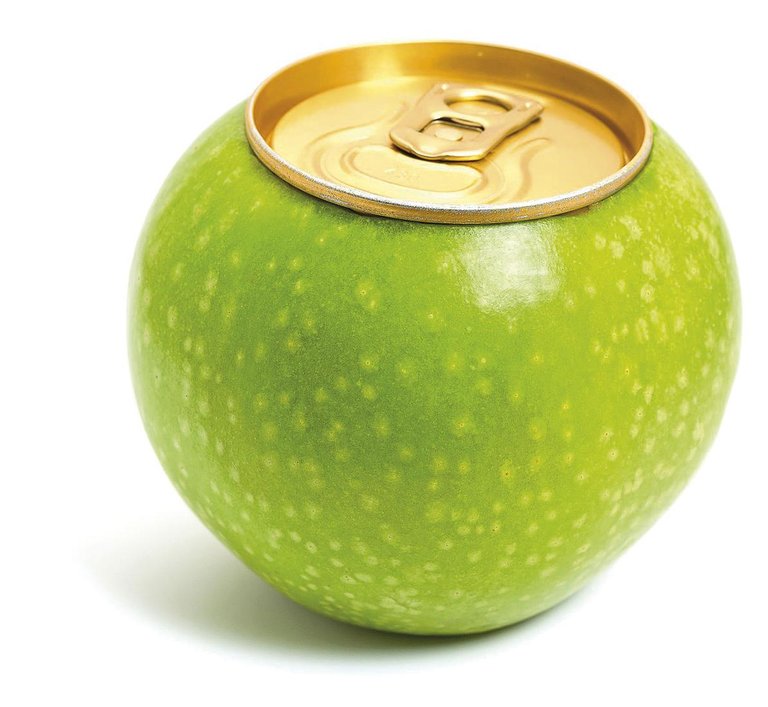Science, advertising and food

For several years it has been common in many sectors to use the scientific message to guarantee the properties of many products from large commercial areas. However, if we had to choose an area in which scientific marketing especially affects the decision to purchase the consumer, we would certainly choose that of human food.
But all that shines is not gold in scientific marketing/food binomial. Healthy characteristics based on non-scientific criteria, subliminal messages with dubious objectives, slogans that are produced taking advantage of the legal gaps and are used to mix the consumer... everything goes in food advertising.
In this article we will present two specific cases that illustrate what is happening in food marketing around the use of science: insufficient scientific guarantee of the announced characteristics of functional foods and the chemophobic message "without preservatives or dyes".
Inaccurate phrases like "Activate your defenses", "Contribute to the development of the immune system", "Prevent cancer", "Lower pressure", etc., use them without limits to attract consumer attention. Both, where functional foods have become the main products of the sector.
However, the European Parliament approved Regulation 1924/2006 on mentions of nutritional and health characteristics of food, which allowed the European Food Safety Agency (EFSA) to put some order in this chaotic situation.
The food industry submitted nearly 50,000 applications to use various slogans, which have been evaluated by EFSA and have been approved by less than 1%. Therefore, companies have had to remove advertising from certain functional foods until reports are presented demonstrating the veracity of the features they mention.
EFSA has discarded, among others, advertising messages concerning the improvement of cholesterol regulation, bone mineralization, immunity and digestion systems, calcium absorption, cognitive function, sports performance, obesity reduction, etc., characteristics traditionally assigned to lactobacilli, isoflavones or omega 3 fatty acids.
However, the powerful food industry has found a gap in Regulation 1924/2006 and has managed to reuse the slogans it had to remove from its products. There are many companies that have used this legal gap, that is, they have introduced small changes in the composition of functional foods - adding small amounts of other ingredients that can be found in almost any food - to send back with their products the impossible... yes, without lowering the price of these products.
Therefore, and with certain exceptions, the functional foods that we can currently find in malls, although they comply with current legislation, are deceptive for the consumer, who does not know the dubious strategies of business marketing.
But, from my point of view, the second case that I am going to expose is much more complicated, since it is more difficult to regulate legally than that of functional foods. In recent times, chemophobia has increased, that is, fear or rejection of everything related to chemicals, to the point of concern... and the food industry has contributed significantly to this.
One of the slogans we see most in food products is "No preservatives or dyes", which often includes: "Only natural" or "100% natural". Someone may think that these messages have a purely informative purpose about the composition of products, but many scientists clearly criticize the subliminal message that is sent to the consumer through this slogan.
According to surveys conducted on the population of several EU countries, 75% of consumers, when reading on a food label the phrase "Without preservatives or dyes", understand that this product is safer than that containing preservatives, dyes, additives, etc. This statement is worrying.
The addition of preservatives and dyes to food, in addition to not posing a risk to human health, is often necessary for safety reasons or for people to accept a food. In addition, it should be remembered that these substances have had to overcome numerous physical-chemical and sanitary controls before use.
So, and going back to our chemophobic slogan, if an additive has exceeded all the necessary controls and has been accepted by the authorities for its consumption and they say that the use of additives in the food industry is not cause for concern... How is it possible that in order to increase the purchase volume the slogan "Without preservatives or dyes" is allowed in food, if surveys show that people do not have additives is beneficial for health?
I just finished. Food marketing has to change completely if you want to use science to advertise your products. To achieve this goal, and always from a personal point of view, they are two key factors. On the one hand, EFSA must re-create the laws considering that the healthy characteristics of a food must provide final products and not each of its ingredients. On the other hand, the food industry should have a certain ethic when announcing its products, without seeking legal refunds that confuse consumers and without trying to earn market shares through subliminal messages that cause unfounded fears to people... Otherwise, pseudo-scientific marketing will continue to prevail over scientific accuracy.
Buletina
Bidali zure helbide elektronikoa eta jaso asteroko buletina zure sarrera-ontzian











